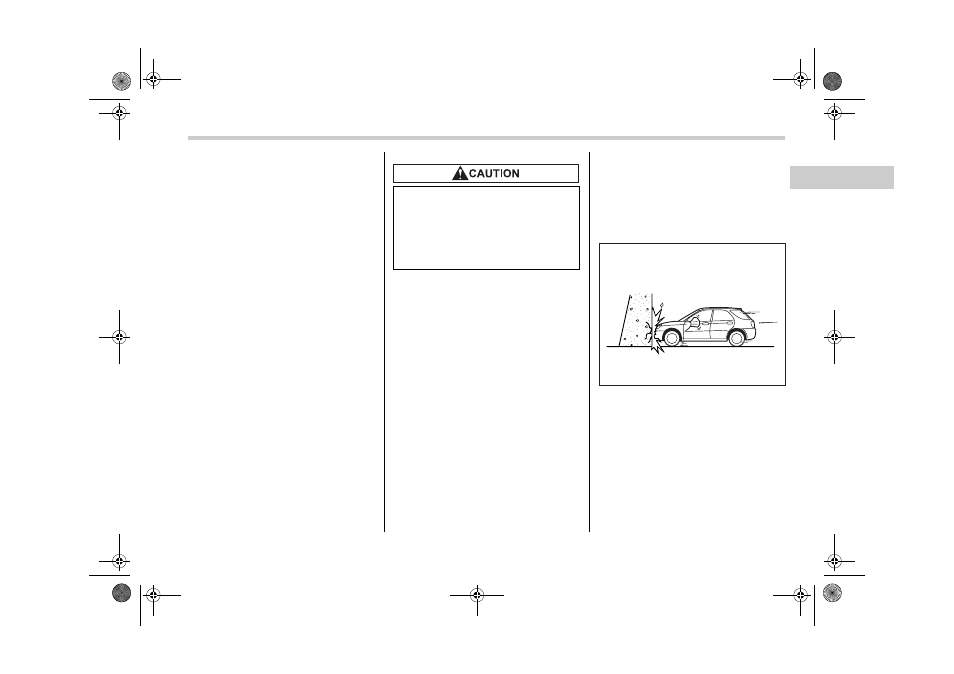Saab 2006 9-2 User Manual
Page 69

Seat, seatbelt and SRS airbags
1-45
1
– CONTINUED –
case of the front passenger’s SRS frontal
airbag. After deployment, the SRS airbag
immediately starts to deflate so that the
driver’s vision is not obstructed. The time
required from detecting impact to the de-
flation of the SRS airbag after deployment
is shorter than the blink of an eye.
Both when only the driver’s SRS frontal
airbag deploys and the driver’s and front
passenger’s SRS frontal airbags deploy,
the driver’s and front passenger’s seatbelt
pretensioners operate at the same time.
Although it is highly unlikely that the SRS
airbag would activate in a non-accident
situation, should it occur, the SRS airbag
will deflate quickly, not obscuring vision
and will not interfere with the driver’s abil-
ity to maintain control of the vehicle.
When the SRS airbag deploys, a sudden,
fairly loud inflation noise will be heard and
some smoke will be released. These oc-
currences are a normal result of the de-
ployment. This smoke does not indicate a
fire in the vehicle.
The driver’s SRS frontal airbag and front
passenger’s SRS frontal airbag are de-
signed to deploy in the event of an acci-
dent involving a moderate to severe fron-
tal collision. It is basically not designed to
deploy in lesser frontal impacts because
the necessary protection can be achieved
by the seatbelt alone. Also, they are basi-
cally not designed to deploy in side or rear
impacts or in roll-over accidents because
deployment of only the driver’s SRS fron-
tal airbag or both driver’s and front pas-
senger’s SRS frontal airbags would not
help the occupant in those situations. The
driver’s and front passenger’s SRS frontal
airbags are designed to function on a one-
time-only basis.
SRS airbag deployment depends on the
level of force experienced in the passen-
ger compartment during a collision. That
level differs from one type of collision to
another, and it may have no bearing on
the visible damage done to the vehicle it-
self.
s Examples of accident in which the
driver’s/driver’s and front passen-
ger’s SRS frontal airbag(s) will most
likely deploy.
A head-on collision against a thick con-
crete wall at a vehicle speed of 12 to 19
mph (20 to 30 km/h) or higher activates
only the driver’s SRS frontal airbag or both
driver’s and front passenger’s SRS frontal
airbags. The airbag(s) will also be activat-
ed when the vehicle is exposed to a frontal
impact similar in fashion and magnitude to
the collision described above.
Do not touch the SRS airbag system
components around the steering
wheel and dashboard with bare
hands right after deployment. Doing
so can cause burns because the
components can be very hot as a re-
sult of deployment.
100711
A1910BE-A-GSAAB.book Page 45 Tuesday, September 6, 2005 8:37 AM